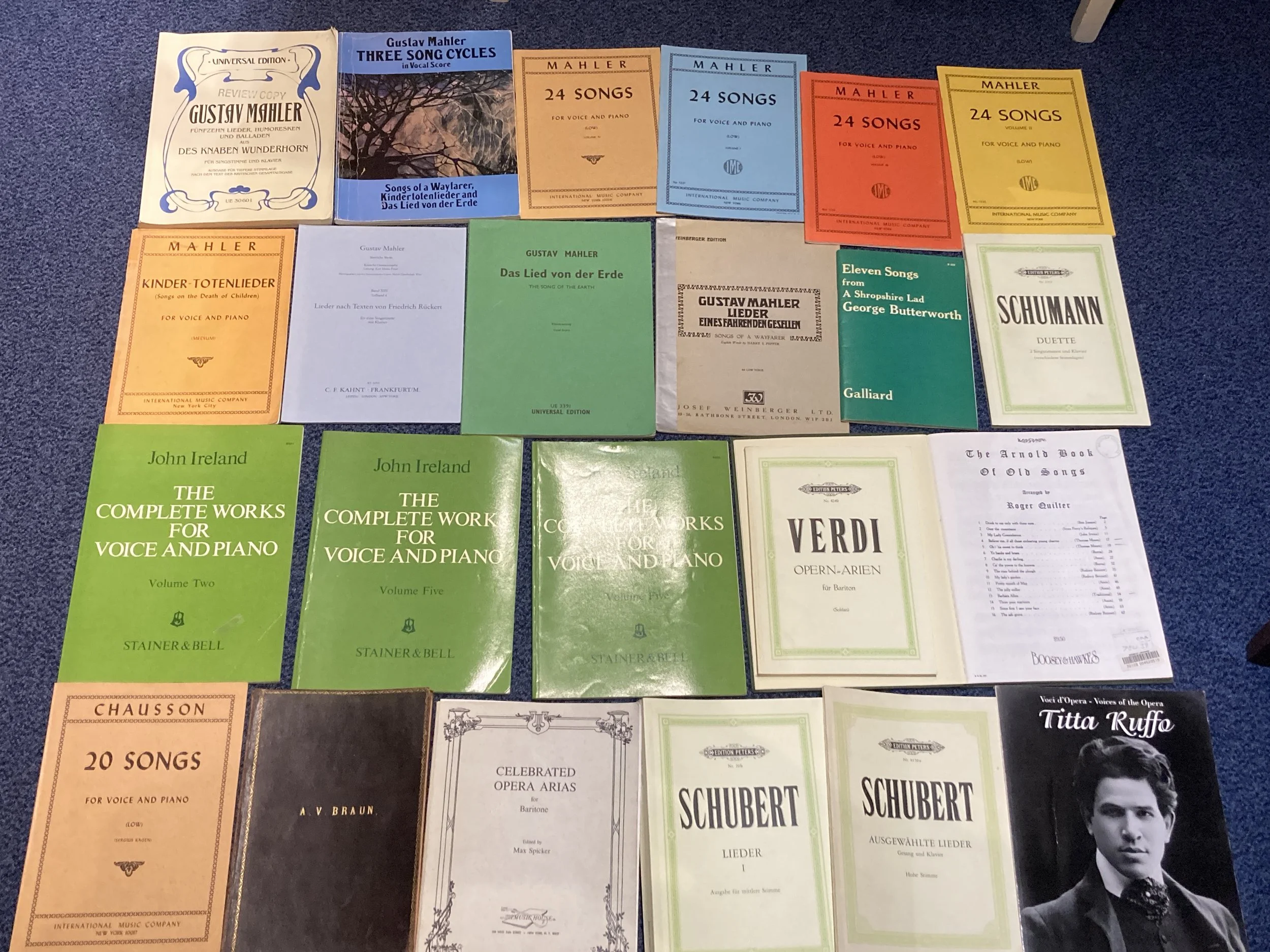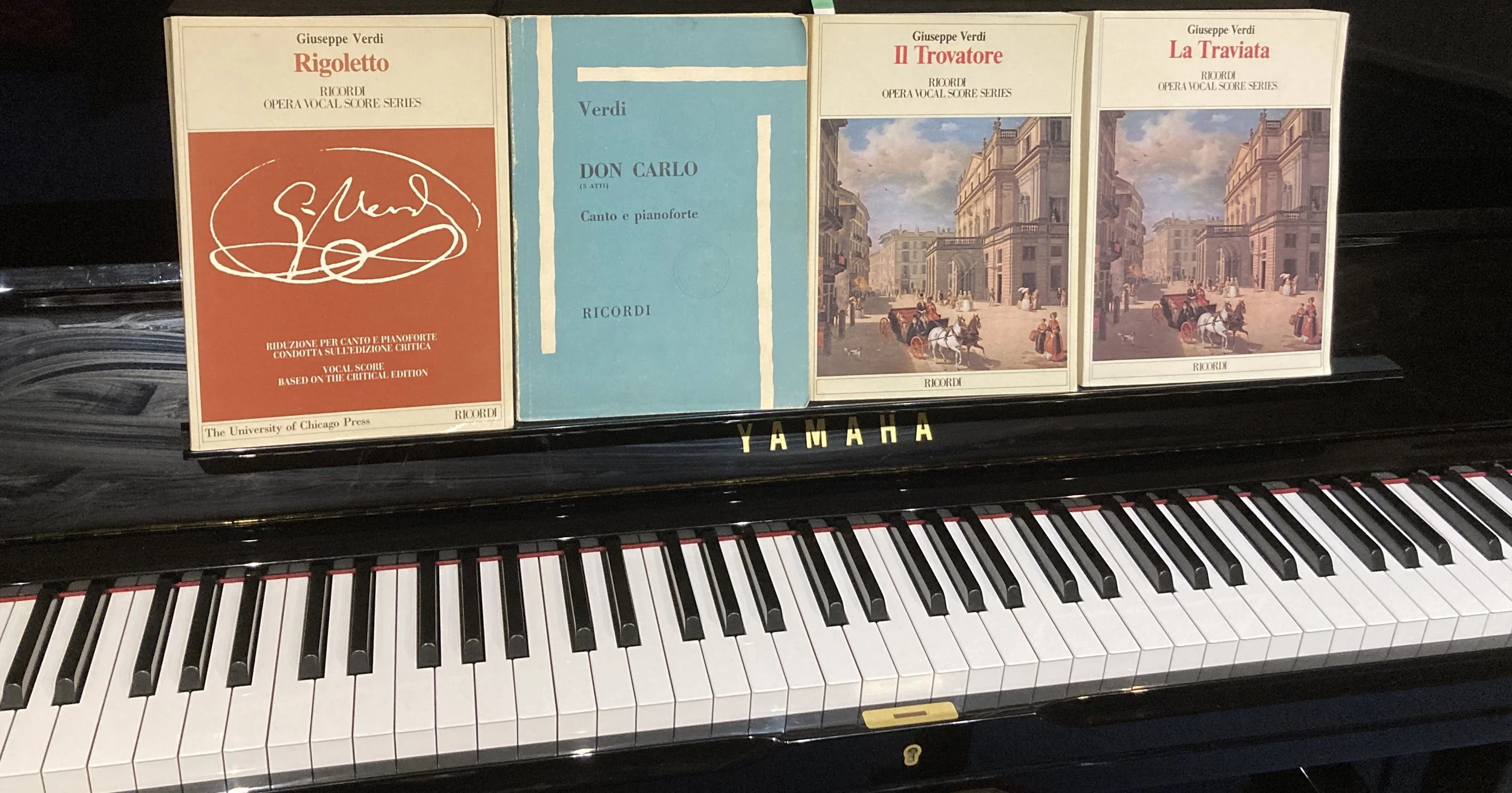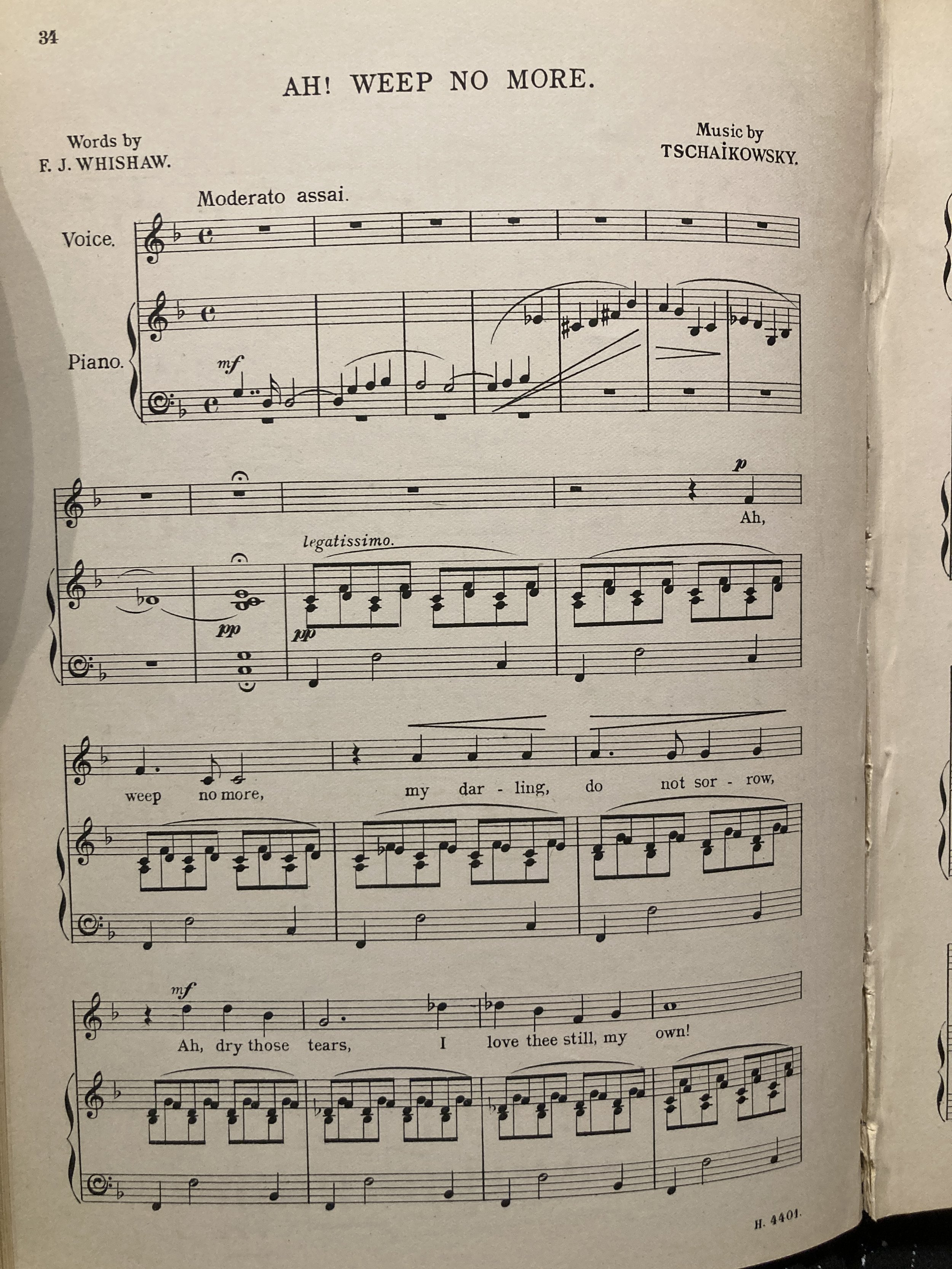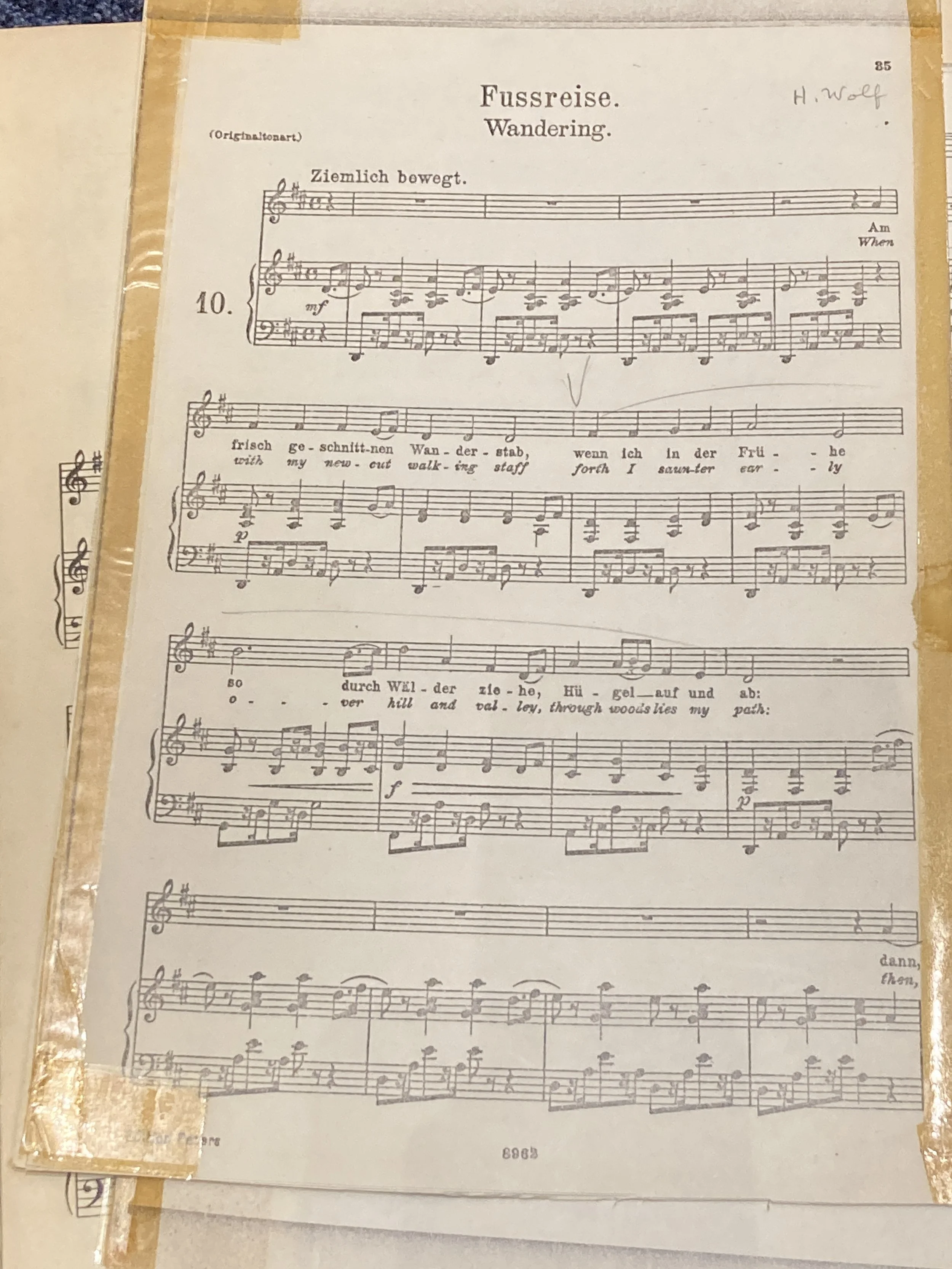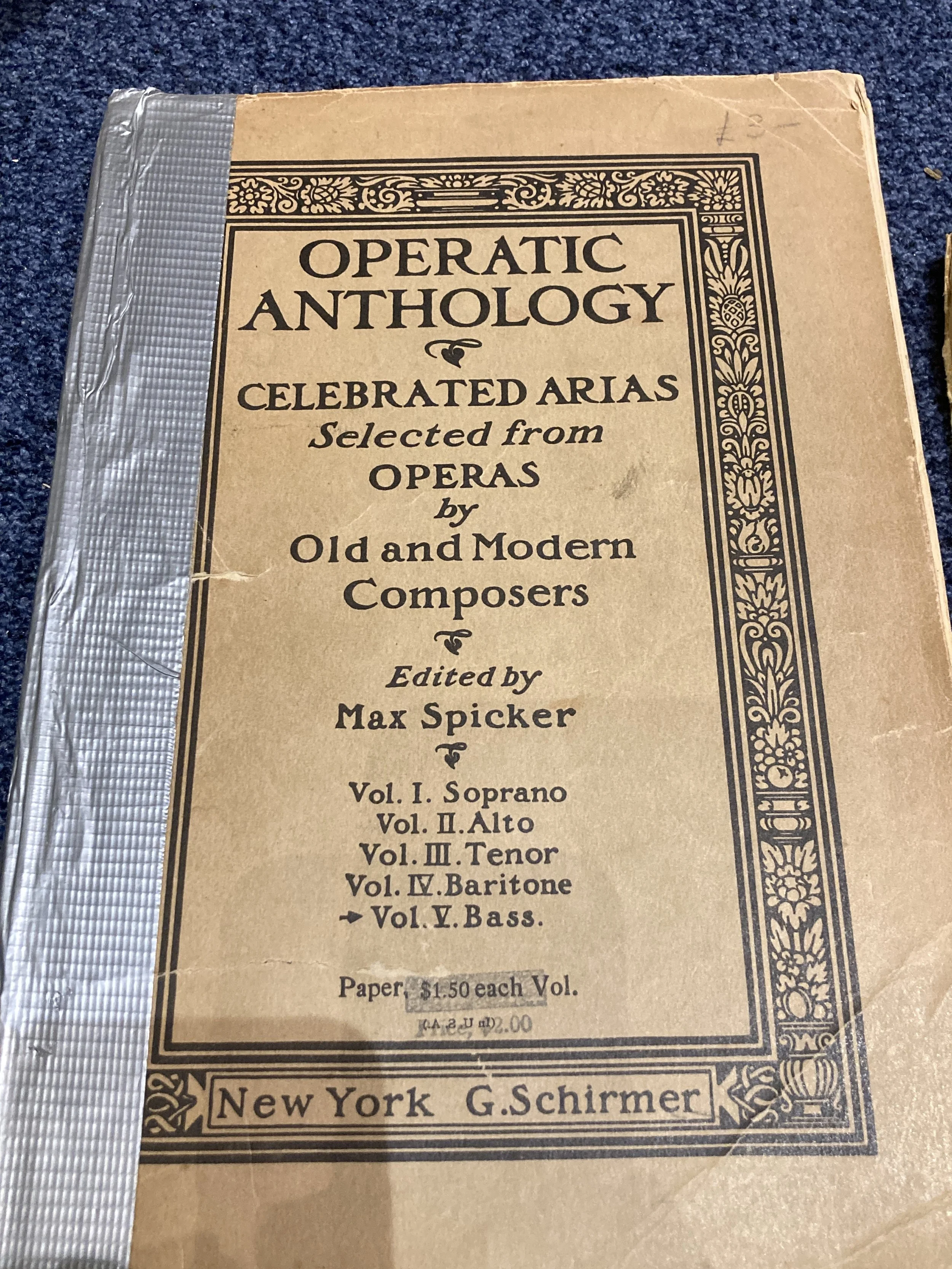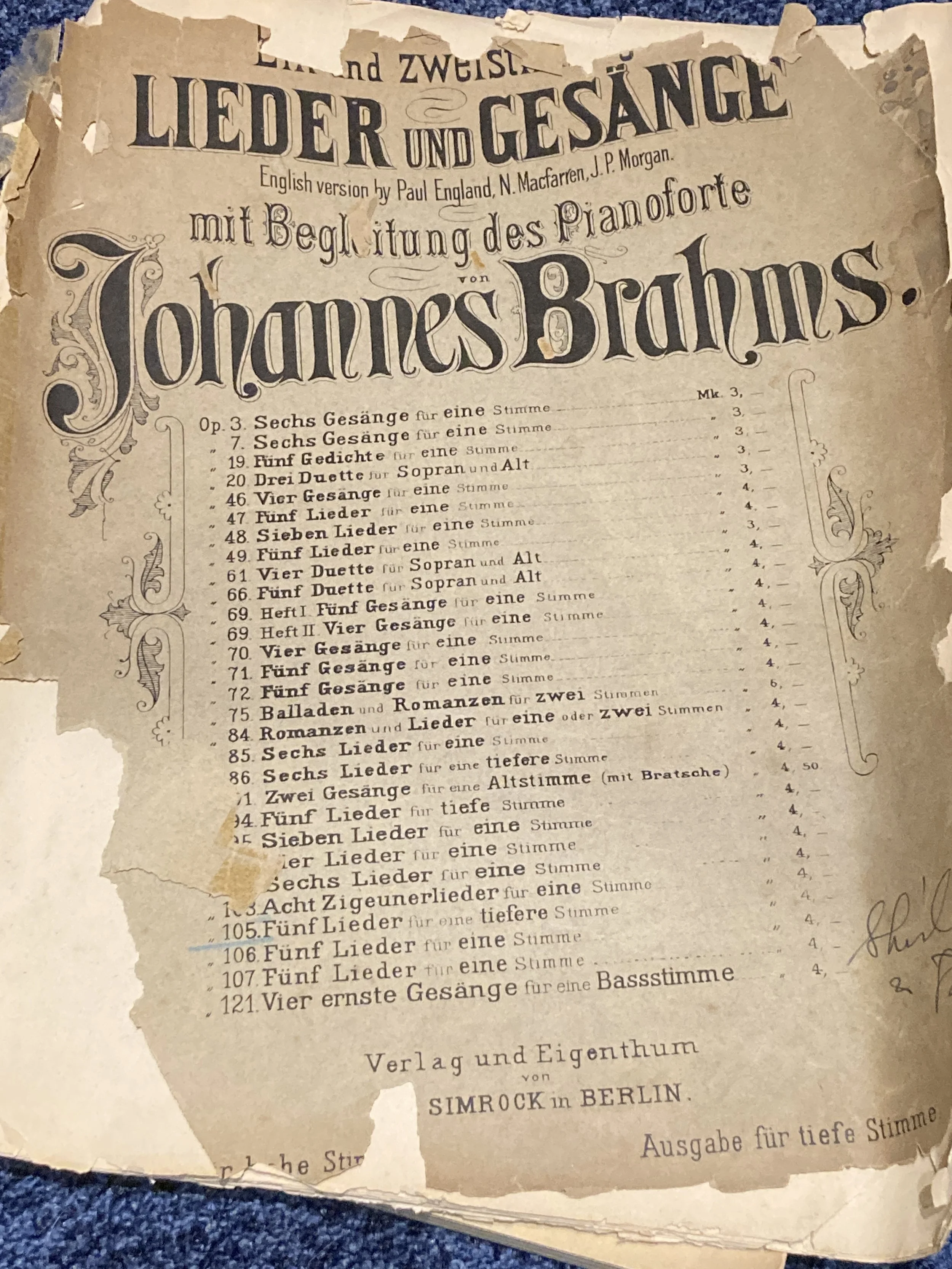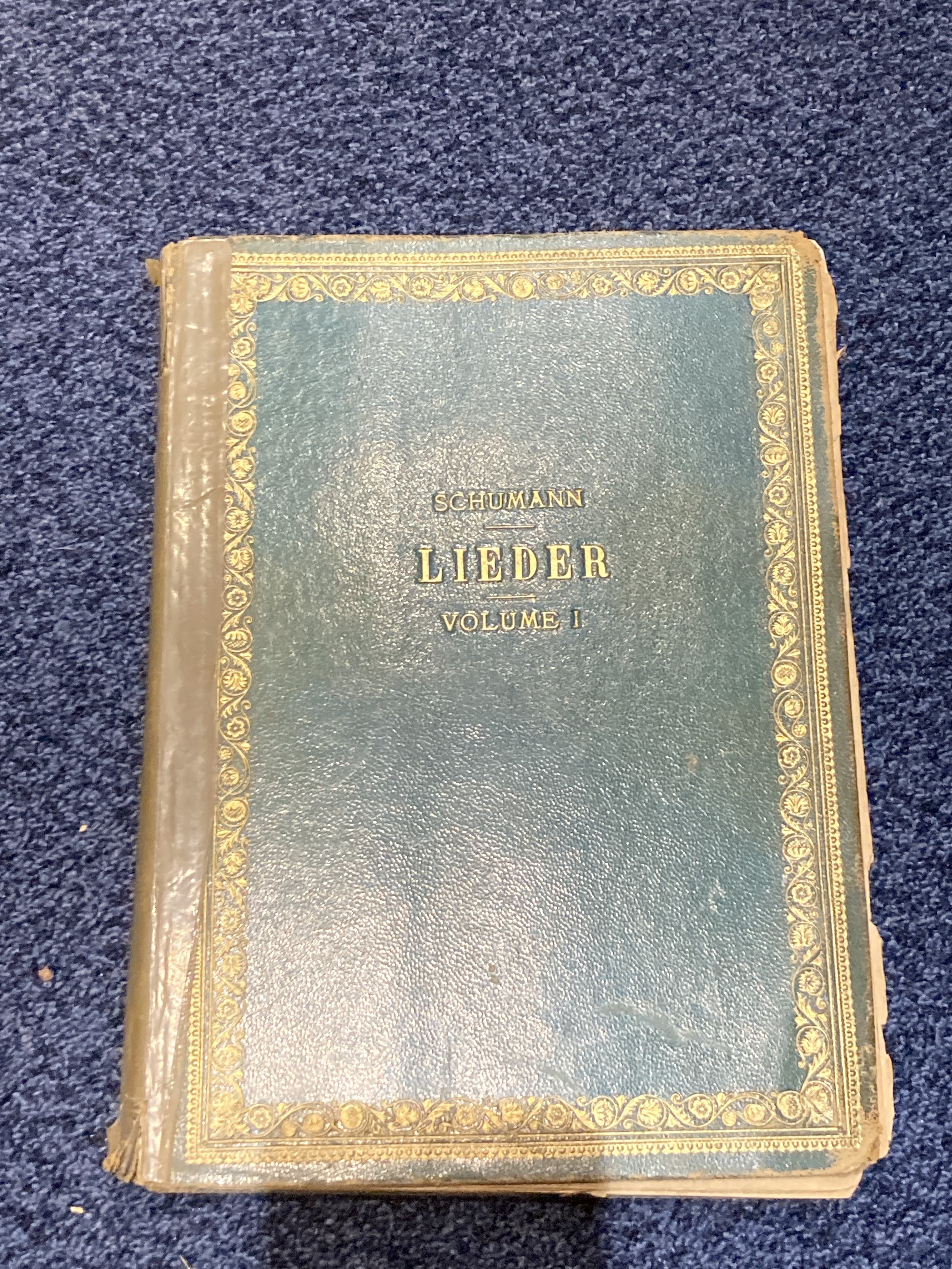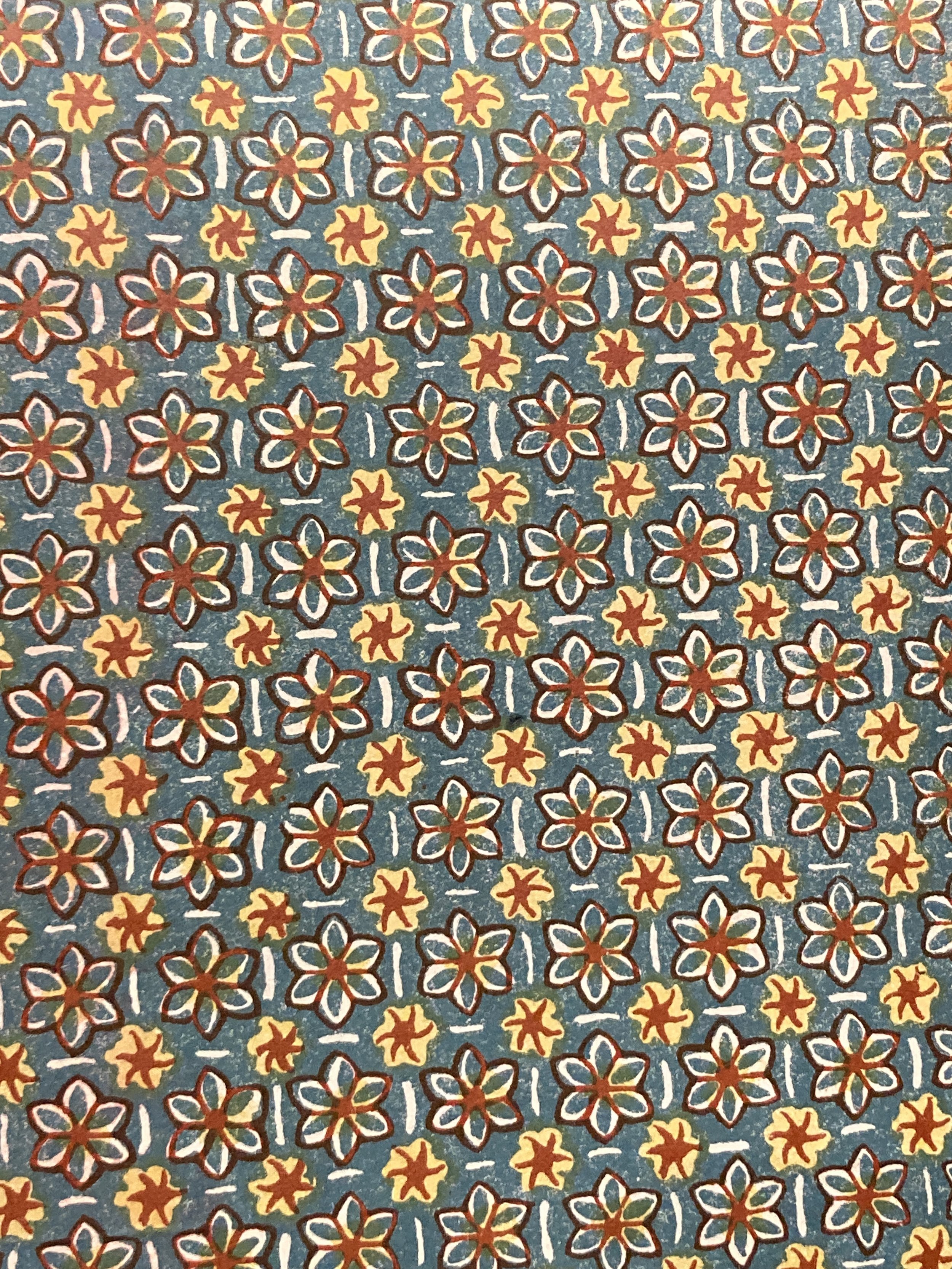Songs of a Chinese Wayfarer - Remembering Dad through his Opera scores, I find my voice… - Notes
In preparation for a studio and home move, I’m reluctantly decluttering. Dad’s music library was a sprawling mass of vinyl LP records, CDs, tapes and vocal scores.
Dad was an avid amateur bass-baritone with soprano aspirations (!!!) I’d often find him singing along to his records.
These notes are affectionate and nostalgic yet they conclude with reflections on cultural appropriation and the exotisation of Asian women in Classical music.
So where did this all begin?
As a teenager in Hong Kong, Dad won a singing competition at school. When his friend told him that his sister was a piano accompanist he couldn’t wait to meet her. Apparently she was sleepy as she’d just had her afternoon nap. The sleepy accompanist turned out to be my mum (who had trained under famed Hong Kong pianists, Moya Rea and “Betty” Drown). Mum flew to the UK after she and Dad were married in the mid 1970s. In a touching dedication in a book, my dad wrote that he’d deprived Hong Kong of one of its finest accompanists.
Unfortunately, Dad had some stressful and traumatic experiences, so singing opera and lieder really helped Dad with his mental health. Having been aware of some of the dramatic / myth-based storylines and characters, I feel expressing the emotions in the lyrics and listening to the music was cathartic for him.
I was surprised when I realised how dark some of the lyrics were, for example in the songs by Wolf. And that’s coming from someone who used to listen to heavy music such as alternative rock and metal, drum ‘n’ bass and so on.
I also found the Germanic and “epic” styles rather heavy for my taste, and discovered I preferred the “lighter”, more fanciful feel of French songs eg Les nuits d’ete by Berlioz.
As an artist, I quite liked the aesthetic of these covers but also I was mildly annoyed that these like the vast majority of books centre dead white men. Not only that but they are out of date. For example, the book about Benjamin Britten refers to Peter Pears as his friend rather than his partner.
As a British-born Chinese queer, trans and non-binary artist, I prefer to create original music and songs and performance which reflect on and critique society and culture, rather than continuing to uncritically platform Eurocentric dead white men music. If the terms seems a little cruel, the idea is that there are also composers of the global majority including those who are not cishet men who create music as well, and it would be great if music students knew about them.
I survived oppression of Section 28, yet while there is some progress, most straight parents still do not tell their children that we exist and LGBTIQA+ (especially trans and intersex) people are erased for the sake of political distraction. As a British Chinese artist, I’d like to inspire other Asians to create.
Selling the items was perhaps a way of processing my grief. If I could sell these, it would mean that they were worth something. Also as I was a 1990s teen, I am keen on recycling and repurposing.
When we tried to shift the LPs, either my phone wasn’t up to it, or I wasn’t aware that you could scan in barcodes using a smart phone. My cousin and I spent a while attempting to type up information. After about 50, we gave up and boxed hundreds of Dad’s LPs, and sold the lot for £40 on Gumtree.
I managed to sell some CDs on Momox by typing in the barcodes one by one. Last month, I put the photos above on Gumtree and boxed these scores to a local music contact for £50. I realised that I could possibly have sold them on Ebay for more (don’t get me started on what happened when I tried to sell books on Amazon…!) however the thought of filling in all the information for all these books was quite daunting. Yesterday, I discovered musicMagpie has an app you can scan items on.. I wish I knew about it 10 years ago..
If one solely or mostly plays piano music, it’s quite illuminating to see the lyrics as they are so much more directly emotional (as in this song by Tchaikovsky) and may give the reader distinct images to imagine.
As a piano teacher, I encourage my students to listen to vocal music, to help them project and express the melody line.
Looking at the accompaniments also inspired me as a songwriter - although I try to keep mine simpler these days (after hearing how Freddie Mercury said he preferred to focus on singing). I remember my mum complaining about the piano accompaniments for Mahler’s music which were reductions of orchestral scores.
Aside from the sometimes disturbing and melodramatic stories in operas, some of the lieder songs have a more down-to-earth feel with references to nature and a longing for adventure.
However I am forever chilled to the bone by the horrific story of the Erl King and other macabre pieces! When people say that Classical music is relaxing, they are probably not thinking of this story…
Despite parting with these a few months ago, the feel of the paper weight, texture is embedded in my memory as Dad collected these books since I was small.
As I used to be an illustrator and designer, I have an appreciation for the lettering and design of these books.
The repeated patterns have a soothing and pleasantly stimulating effect on me. They remind me slightly of some of the designs I encountered at The Magic Notebook, a UK based stationery shop featuring the work of Asian artists.
I was aware of Turandot and Madam Butterfly for many years… When I was a child and presented as a young Chinese woman, my family were grateful for what appeared to be representation in these operas, but amidst stunning melodies we were being fetishised.
It may seem odd that a Chinese person would feel affected by Japanese appropriation. Isn’t that appropriation in itself? I think it is, because for racists, East (and possibly Southeast) Asian girls and women are viewed as entertaining and disposable objects of repressed coloniser desire.
In my opening paragraph, I described my reluctance to declutter. As well as complex feeling of trans and queer grief, I’m also finding feelings of latent anger as global majority cultures are plundered for their “exotic worth”. As I’m writing this, I’m intrigued by the boldly titled, untitled f*ck m*ss s**gon play is about to begin its run in Manchester.
It’s interesting to reflect on how I have come to create, perform and collaborate and I’m keen to watch the play when it comes to London.
UNTITLED F*CK M*SS S**GON PLAY is on from 24 June to 22 July at The Royal Exchange in Manchester and 18th September to 4th November at Young Vic in London.
- mental health
- creativity
- art
- writing
- performance
- storytelling
- LGBTIQ
- trans
- music
- video
- DIY culture
- comics
- songwriting
- decoloniseeducation
- composing
- photography
- racism
- intersectional feminism
- poetry
- teaching
- film
- queerculture
- britishcolonialism
- culture
- learning
- asian
- comedy
- employment
- family
- interview
- transcript
- trauma
- higher education
- physical health
- animation
- language
- politics
- science
- tv
